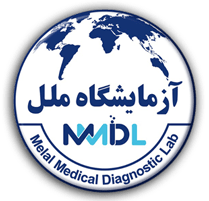Cryolobulinemia is a group of rare disorder that result damage of the blood vessels and vital organs. The presence of cold sensitive immunoglobulins restricts blood flow in skin, muscles, nerves and kidneys. These abnormal proteins are in patients who have autoimmune disease or hepatitis C virus (type II and III or mixed cryoglobulinemia). Type I cyroglubulinemia is related to leukemia, multiple mylemoa, rheumatoid arthritis and SLE.
Panel Test:
● Cryoglobulin, (IgA, IgG, and IgM)
● C-Reactive Protein
● Protein Electrophoresis, Serum
● Sedimentation Rate, Westergren (ESR)
● Creatinine, Serum or Plasma Urinalysis
● Urea Nitrogen, Serum or Plasma
● Rheumatoid Factor
● Complement Activity (CH50)
● Complement Activity, Alternative Pathway (AH50)
● Connective Tissue Diseases tests:
o Smith (ENA),
o Sm/RNP,
o SSA, SSB,
o Jo-1, RPP,
o centromere and Scl-70 antibodies
● Anti-Neutrophil Cytoplasmic Antibody
● MPO/PR3 Antibodie
● Autoimmune Liver Disease:
o Smooth Muscle Antibody (SMA), IgG (IFA)
o LC-1 and soluble liver antigen (SLA)
o mitochondrial M2 antibody, IgG;
o liver-kidney microsome-1 antibody, IgG;
o F-actin (smooth muscle) antibody, IgG
● Hepatitis Virus test:
o HAV IgM,
o HBV core antibody IgM
o HBV surface antigen
o HCV antibody (if results is positive it’s must be confirm by molecular test)
● Human Immunodeficiency Virus (HIV)
● Hepatic Function:
o albumin;
o ALP; AST; ALT;
o bilirubin, direct; and bilirubin, total
o protein, total;
● Thyroid function
o T3
o T4
o TSH
References
1. Ramos-Casals M, Stone JH, Cid MC, Bosch X. The cryoglobulinaemias. Lancet 2012; 379:348.

